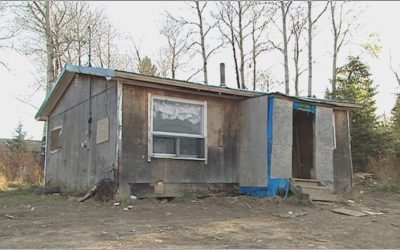When Prime Minister Stephen Harper asks the Governor General to prorogue Parliament, all bills currently on the order paper will die.
This means legislation affecting Aboriginal peoples may also die.
Thankfully, however, the government has a list of bills affecting Aboriginal peoples that have already received Royal Assent.
They are listed here. This provides a list of all the legislation currently under review by the 41st Parliament, 1st Session.
This legislative achievement is the passage of Bill S-2, or the Family Homes on Reserves and Matrimonial Interests or Rights Act. This long-awaited bill will now fill the gap that leaves First Nations women vulnerable in case of marital breakdown. Up until recently, often women were left out in the cold as property held on reserves was often held in the male partner’s name. Provincial and territorial laws governing matrimonial division of property do not affect reserve lands.
The second achievement is passage of Bill S-8, the Safe Drinking Water for First Nations Act. This bill provides regulations governing safe drinking water for First Nations, given that reserves once again are outside provincial jurisdictions.
A significant piece of legislation passed was Bill C-27, the First Nations Financial Transparency Act. This legislation will mandate full salary and benefit disclosure for all chiefs and councillors. The Frontier Centre has long promoted transparency for First Nations, arguing that transparency is one of the first steps in good governance.
Also of interest is the passage of Bill C-22, Eeyou Marine Region Land Claims Agreement Act. That agreement will provide security of ownership to the Crees. Also of note is the withdrawal of S-212, First Nations Self-Government Recognition Act. This bill would have provided a process for recognizing autonomy for First Nations. Possessing jurisdiction is one of the first characteristics of good governance.
All of these bills represent an agenda promoting fundamental justice and governance reform. Our Aboriginal Governance Index has long promoted both of these principles.
However, the only sad news is that Bill S-6, the First Nations Elections Act, will die with prorogation. This bill is currently in consideration of committee after second reading.
This bill would have provided an alternative elections regime for First Nations under the Indian Act. First Nations would need to opt into this legislation. They would move from two-year to four-year terms for chiefs and councillors. First Nations have noticed that the shortness of the terms has affected long term political planning.
The bill would have also cleaned up the nomination process, reformed the mail in ballot system, created a more effective elections appeals system, and created defined offences and penalties for infractions.
By far, this voluntary bill would have created much cleaner governance systems for participating bands. It is unfortunate this opportunity will be lost. Let’s hope the governing party returns this bill next session. First Nations cannot afford any more electoral shenanigans.
Let’s also hope this government finally introduces a First Nations Property Ownership Act. This long-promised voluntary bill would advance First Nations economies.


